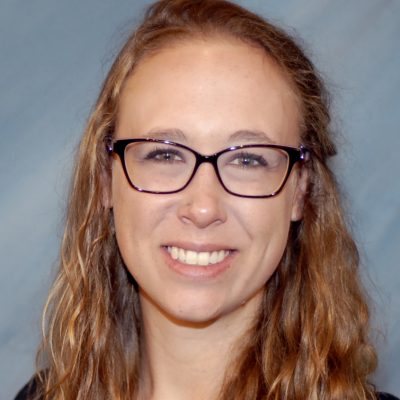This semester marks the one-year anniversary of Dr. Kristen Ramsey at the University of Connecticut’s Molecular and Cell Biology department. Dr. Ramsey is a biochemist with a strong background in cell signaling, biochemistry, and molecular biophysics. Known for her unique approach to both research and teaching, Dr. Ramsey brings a wealth of experience and enthusiasm to her lab and classroom.
Academic Journey and Research Pathway
Dr. Ramsey began her scientific career in Tallahassee, Florida, completing her undergraduate studies at Florida State University. During her time there, she was introduced to the world of research through Dr. Brian Miller’s lab, embarking on an independent project from her first semester. This early exposure to scientific research allowed her to gain independence and set the foundation for her career. Her undergraduate experience led her to discover her true passion for lab work, shifting from an initial desire to pursue medicine to scientific research instead.
After completing her undergraduate degree, Dr. Ramsey continued her journey in academia, earning a graduate degree at UC San Diego under the guidance of Dr. Betsy Komives. There, she developed a deep interest in protein biochemistry and cell signaling, studying molecular mechanisms of the NF-kappa B signaling pathway. This interest only grew during her post-doctoral work with Dr. Doug Barrick at Johns Hopkins, where she delved deeper into cell signaling, specifically investigating the Notch receptors and their role in cellular communication.
Focused Research on Immune Signaling
Today, Dr. Ramsey continues her research into cell signaling through her lab in the Molecular and Cell Biology department at UConn. Dr. Ramsey studies the RIG-I-like receptors (RLRs), which are crucial for detecting viral RNA and initiating immune responses. By understanding how these receptors' dynamics and structures contribute to immune signaling, Dr. Ramsey aims to explore therapeutic possibilities, particularly in the context of cancer and viral infections. Her lab is investigating how these receptors could be targeted to shift tumor microenvironments from “immune cold” to “immune hot,” potentially improving cancer treatment efficacy by harnessing the body's own immune defenses.
Dr. Ramsey’s approach is rooted in a reductionist perspective—breaking down complex biological systems into more manageable components to understand the fundamental mechanisms at play. Her ultimate goal is to uncover new therapeutic targets and use this knowledge to treat diseases more effectively.
Passion for Teaching and Mentorship
In addition to her scientific studies, Dr. Ramsey is dedicated to teaching and mentoring students.This semester, she is teaching a class on the History of Biochemistry, where she engages students with primary sources such as Pasteur's and Watson and Crick's papers. Last Spring, Dr. Ramsey taught Techniques of Biophysical Chemistry and showcased her commitment to accessible, practical learning. The course focused not only on the theoretical aspects but also on the practical application of these methods in research. Her students have given her positive feedback, praising her ability to make complex techniques comprehensible and engaging.
Dr. Ramsey believes in fostering a research environment that encourages curiosity and independence. As a mentor, she strives to give her students the freedom and resources to explore their own research interests, just as she was allowed to do in her early career. To Dr. Ramsey, the opportunity to support the next generation of scientists in their own discovery process is one of the most rewarding aspects of her academic role.
Looking Ahead
Dr. Ramsey is excited about her future at UConn, where she plans to continue pushing the boundaries of cell signaling research while also contributing to the academic community through teaching and mentoring. Her dedication to science and education is palpable, and her work to bridge the gap between molecular mechanisms and therapeutic applications promises to have significant implications for the development of new disease treatments.